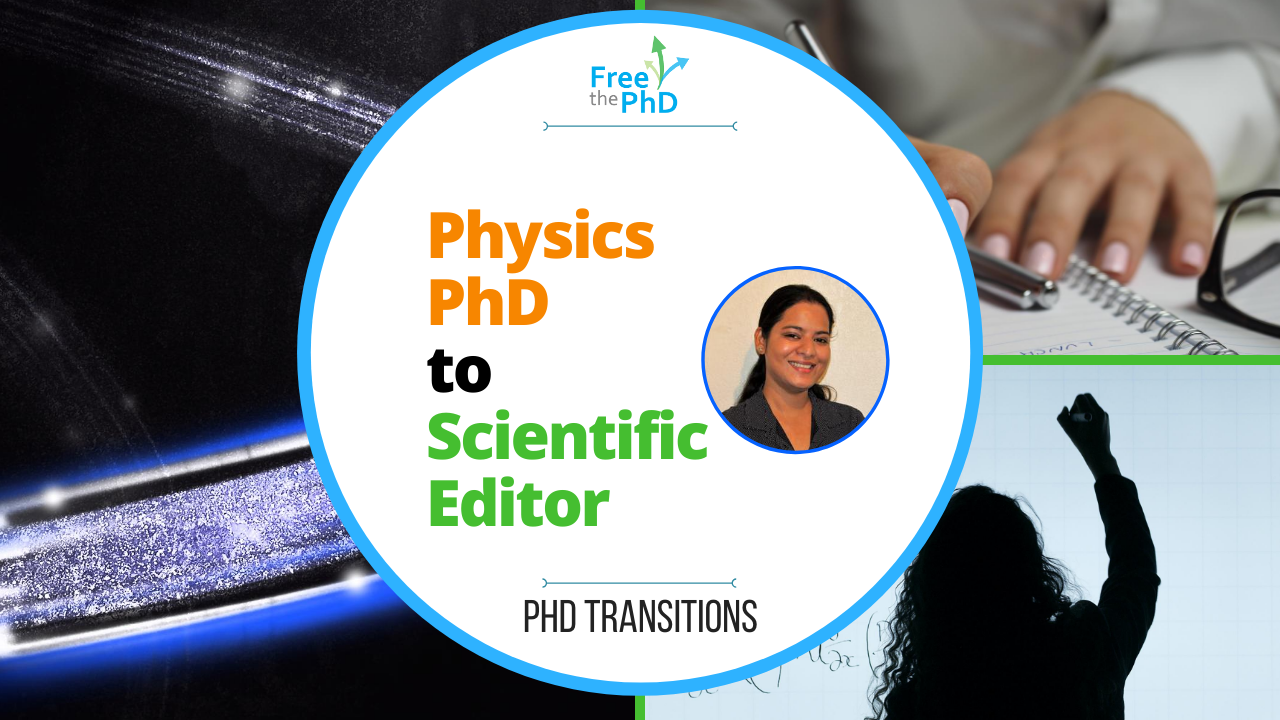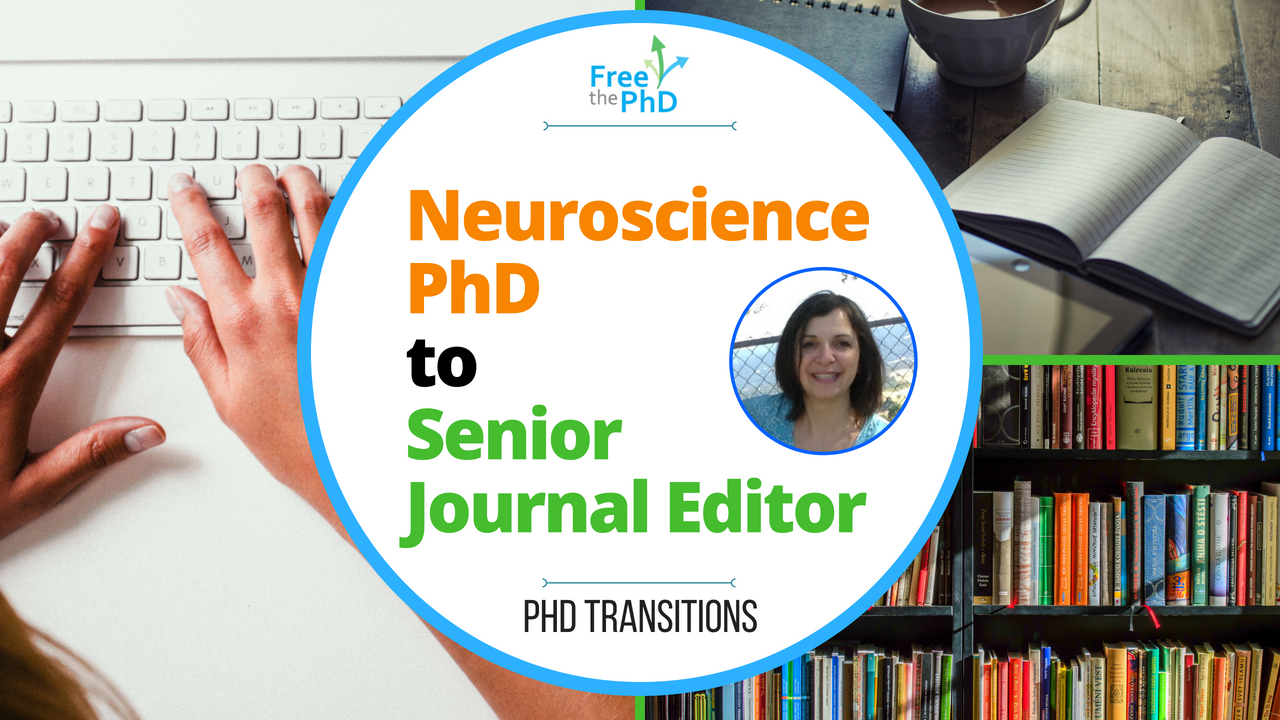While Niharika enjoyed her laboratory research, her struggle to get into industry out of academia as an international PhD left her feeling frustrated and shook her self confidence. That’s when she realized that her skills are not only limited to working in the lab doing research, but saw where she could leverage her scientific knowledge into a more creative and interesting long term career. Let’s hear about Niharika’s inspiring story from bench research to Scientific Editor at Cactus Communications!
Tell us why you were interested in doing PhD/a postdoc?
I always knew I wanted to do research. From the time that I was a kid, I was always fascinated by how our world works. That’s when I decided to pursue my degree in Physics. I am trained mostly as a physicist, and I did my PhD in Physics from India, from Homi Bhabha National Institute.
What was your doctoral work on?
I worked on designing strategies based on optical coherence and interference to obtain control of light-matter interaction, along with numerical/analytical simulations, data aggregation and analysis. I also investigated the effect of permanent dipole moments on the coherent dynamics of molecular systems. Then I did a postdoc in the Quantum Measurement Laboratory at IIT Kanpur, India. After I moved to the USA, I was exploring all possible industry opportunities where I can utilize my scientific expertise and knowledge. I have been always interested in writing and editing scientific content.

When did you start to think about your next step? What options did you weigh, and what factors influenced your decision?
After I moved to the USA, I started looking for opportunities in research where I can contribute my skills and graduate experience. It was quite challenging in terms of transitioning into industry from academia, as well as on immigration issues related due to being an international PhD. I started networking and meeting many people across various domains in industry to learn about different career options as a PhD that I can consider. And that’s one thing I’ve learned: that life is much more than research and science. There’s a whole lot to it; you can do a lot. It also taught me how I can leverage my scientific background to not be a bench scientist, and what other avenues I can leverage my science in. It taught me that I could consider scientific editor opportunities, as I enjoy writing and communicating science. That’s when I decided to apply for editor jobs.
How is your current position different than your academic postdoc or experience as a graduate student?
It is different from my graduate and postdoc experience where I was more involved with lab research work, running various experiments and analysing scientific data. As an editor, I am more involved in writing & editing various scientific manuscripts for the content, language and suitability for its research within the journal’s scope. This role has allowed me to work more closely with the development and marketing teams, commissioning cover artwork, preparing the contents of each issue to be ready for publication every month, assessing manuscripts to be transferred into the journal, and attending regular meetings to keep on top of the journal’s progress in this important first year. I also get to work directly with authors, making sure that their experience with peer review and article production is as smooth as possible.

What advice would you give to fellow PhDs who would like to get a job similar to yours?
I would say it’s always tough to build your resume for any jobs right after graduation. But at the same time it’s also important to leverage your volunteer and academic experience in the correct manner to get your first industry job. There are tons of different options one can choose best on his or her professional interests. For one thing, you don’t have to go through this alone. There are plenty of people out there who’ve probably made the same transition and can offer you advice. But for another thing – networking will be your best friend in finding roles outside your specialty. Stumped on how to find the right people? If your department keeps track of alumni, reach out to those in a similar field and ask for an informational interview. Or, invite former students to give a talk about their career paths to your graduate student groups. If your internal network isn’t as robust, use LinkedIn and in-person networking opportunities like going to conferences, seminars, and workshops to build connections with people who work outside your college. Read blogs or follow accounts by people who’ve made the transition successfully and use those tips to drive your decisions.
What advice would you like to provide someone who has yet to make the leap out of academia?
My advice for anyone looking for new career opportunities is to network with people whose job you are interested in. It’s so simple, but worthy of a reminder: It’s OK to ask others for help when making this change—in fact, you should. LinkedIn is a good platform to connect to people and just ask questions. I mean, generally, it might not be the person you’re looking for that’s on LinkedIn or Twitter. But there’s always someone whom you can reach out to and they can connect you with the right people. How do you know that companies will hire you or not? You cannot sit in your own lab and make judgments; you have to talk to people. You have to find that out in the interview process. To me, just going through the interview process was a fun thing!
By Pratibha Kakadia, Ph.D.
Got questions or comments, or aspire towards a similar career path but unsure how to get started? We’ve helped PhDs like you to land research, consulting, science communication, commercial, and client facing jobs with step-by-step, realistic guidance, based on our first-hand experience working away from the bench. Join our Free the PhD Careers Community for personalized help with your resume, networking, interviewing and skill-building to find a life you love outside academia!


